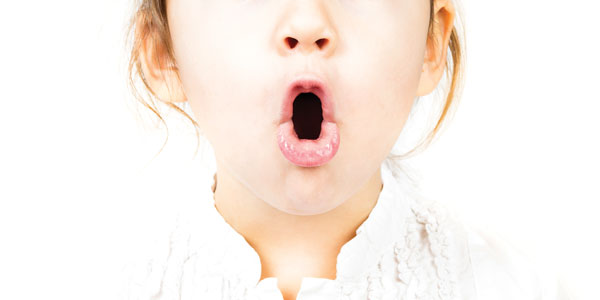
So you’ve been told that your child has Childhood Apraxia of Speech (CAS).
But what does that mean?
And how is it different from Timmy’s lisp, or Sally saying “car” instead of “tar”?
CAS stands for childhood apraxia of speech. Other terms used to describe the condition include developmental apraxia of speech (DAS), developmental articulatory dyspraxia (DAD) and developmental verbal apraxia (DVD). We most commonly use the term CAS in Australia.
In technical terms, CAS is a motor speech disorder. This means that children with CAS have trouble planning the body parts (lips, jaw, tongue) needed for speech. They know what they want to say but their brain has difficulty coordinating their muscle movements in the right way to say their words.
As with any speech delay or disorder, it is ALWAYS a good idea to have a hearing test to rule out any hearing issues. However, children with severe speech disorders do not always have hearing issues. This is often the case with children who have CAS. They may be able to hear the sounds but are having trouble planning and producing them in speech.
Speech Pathologists use the word “delay” when a child’s speech is following the ‘typical’ path of childhood development, perhaps at a slower rate than what is considered normal. Children with apraxia often have ‘atypical’ speech production patterns that require therapy with a Speech Pathologist.
What we also see with children with CAS is that their receptive language skills (that is their ability to comprehend verbal information) is relatively within normal limits but their ability to use words and sentences to express themselves is severely affected. This can be a cause of great frustration for many children with CAS.
There has been some disagreement amongst researchers over the years about how we can diagnose and characterise CAS. A number of symptoms/characteristics can be used to identify the condition. However, it is important to remember that every child with CAS may present with a different combination of symptoms. Children may present with some, but not all, of the following.
Key speech characteristics include:
Children with CAS may also present with other co-occurring characteristics such as:
First and foremost, it is important parents know that there is most likely nothing they did to cause their child’s speech difficulty.
In children without neurodevelopmental conditions, there is no definitive cause for CAS that we know of yet. At this stage, there is some research to suggest a genetic component, with clinical studies suggesting that children with CAS may present with a family history of speech and language difficulties. Research is still being undertaken to determine a more definitive cause.
CAS can also co-occur with other conditions such as Autism, Fragile X, some forms of Epilepsy and chromosomal genetic conditions.
There is little data available about the exact number of children who have CAS. A study by Shriberg, Aram & Kwiatkowski in 1997 reported an estimate of 1-2 children per 1000 in the population as having CAS. Research also suggests that idiopathic CAS affects more boys than girls by a ratio of 2 or 3:1.
If your child has CAS they will need ongoing treatment from a Speech Pathologist. Because CAS is a motor speech disorder, they will need intensive and individualised therapy with a focus on motor learning. The literature supports intensive training schedules of 3 to 5 sessions per week with a Speech Pathologist. As with learning any other motor skill, like throwing a ball, children with CAS will need lots of practice and repetition as they learn new speech movements until they are automatic.
For children with severe speech disorders, Speech Pathologist’s may also recommend the use of augmentative and alternative communication (AAC) options such as picture communication or speech generating devices to supplement a child’s natural speech.
Children with CAS may be eligible for funding through the NDIS which can help families with the cost of seeing a Speech Pathologist at the required intensity.
Learning that your child has a speech disorder such as CAS can be overwhelming. I recommend families visit Apraxia-KIDS to learn more about CAS and what this may mean for their child and family. The ‘Family Start’ guide provides a great overview of the condition for families who are new to the condition and covers the full range of Frequently Asked Questions.
The Mayo Clinic also have a very informative video about CAS which I highly recommend. Watch the video here.
If you have concerns that your child might have CAS or a speech delay, contact a Speech Pathologist and arrange an initial consultation today. To book an initial consultation with our team book here.
For more information about preschool age children and speech and language development, you may also like our blog “Does my preschooler need speech therapy?”